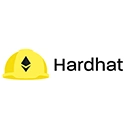Hardhat is a powerful Ethereum development environment that provides several tools for debugging smart contracts. These tools help developers identify and fix issues in their contracts efficiently. In this guide, we will explore the primary debugging tools available in Hardhat, including console logging, stack traces, the Hardhat Network, and more.
1. Console Logging
One of the most straightforward ways to debug smart contracts is by using console logs to output information during contract execution. Hardhat allows developers to use the console.sol library to log messages directly from the smart contracts.
1.1. Using Console Logging
To use console logging, you need to import the console library in your smart contract. Here’s a simple example:
// SPDX-License-Identifier: MIT
pragma solidity ^0.8.0;
import "hardhat/console.sol";
contract MyToken {
mapping(address => uint256) public balances;
function mint(address to, uint256 amount) public {
balances[to] += amount;
console.log("Minted %s tokens to %s", amount, to);
}
function balanceOf(address account) public view returns (uint256) {
return balances[account];
}
}In this example, the mint function logs the amount of tokens minted and the recipient's address. This helps track the flow of tokens and debug any issues related to the minting process.
2. Stack Traces
When running tests or transactions, Hardhat provides detailed stack traces for any errors that occur. This feature is incredibly useful for identifying the exact location of a problem in your smart contract.
2.1. Example of Stack Traces
Suppose you have a function that requires certain conditions to be met:
function transfer(address to, uint256 amount) public {
require(balances[msg.sender] >= amount, "Insufficient balance");
balances[msg.sender] -= amount;
balances[to] += amount;
}If you try to transfer more tokens than the sender's balance, Hardhat will provide a stack trace that shows where the error occurred:
Error: Insufficient balance
at MyToken.transfer (path/to/MyToken.sol:10:5)
at processTicksAndRejections (node:internal/process/task_queues:96:5)
This stack trace indicates the exact line in the smart contract where the error occurred, making it easier to debug.
3. Hardhat Network
The Hardhat Network is an Ethereum network designed for development. It allows you to deploy contracts, run tests, and interact with your contracts in a local environment. The Hardhat Network also provides debugging features such as transaction inspection.
3.1. Starting the Hardhat Network
To start the Hardhat Network, run the following command:
npx hardhat nodeThis command will start a local Ethereum network, and you can deploy contracts and run tests against it.
3.2. Inspecting Transactions
Once the Hardhat Network is running, you can inspect transactions. For example, you can execute a script that interacts with your deployed contract:
npx hardhat run scripts/deploy.js --network localhostAfter executing a transaction, you can check the transaction details in the console output or use the Hardhat console to inspect the state of your contracts in real-time.
4. Hardhat Console
Hardhat provides an interactive console that allows you to execute JavaScript code in the context of your Hardhat project. This is particularly useful for debugging and testing contracts interactively.
4.1. Using the Hardhat Console
To start the Hardhat console, run:
npx hardhat console --network localhostOnce in the console, you can interact with your contracts. Here’s an example:
const MyToken = await ethers.getContractFactory("MyToken");
const myToken = await MyToken.attach("YOUR_DEPLOYED_CONTRACT_ADDRESS");
// Check balance of an address
const balance = await myToken.balanceOf("ADDRESS_TO_CHECK");
console.log(`Balance: ${balance.toString()}`);
// Mint tokens
await myToken.mint("ADDRESS_TO_RECEIVE_TOKENS", 100);
</ pre>console.log("Minted 100 tokens to ADDRESS_TO_RECEIVE_TOKENS");This interactive console allows you to test functions and inspect the state of your contracts in real-time, making it a powerful tool for debugging.
5. Conclusion
Hardhat provides a comprehensive set of debugging tools that help developers identify and resolve issues in their smart contracts. By utilizing console logging, stack traces, the Hardhat Network, and the Hardhat console, developers can ensure their contracts are functioning correctly before deployment.

